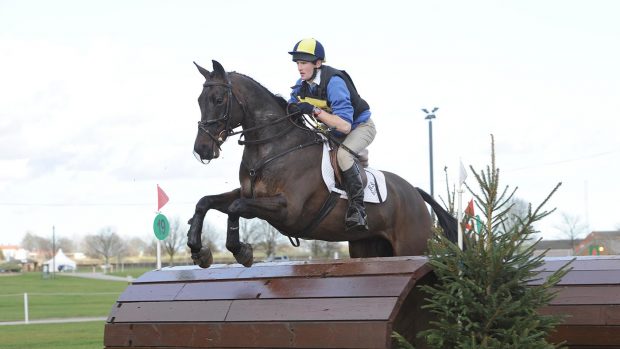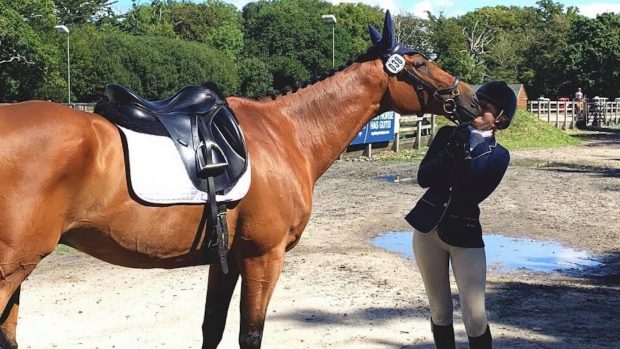Rick Farr of Farr & Pursey Equine Vets shares his expert advice on PENS therapy in relation to head shaking
Q: “PENS Therapy: Have any of you sent your horse for PENS Therapy for headshaking? My vet seems keen to try this if the current drug trial doesn’t help, but reading about it I can’t see much point realistically. I understand that it seems to take two or three goes to bring about any short term benefits and then appears to need a “top up” as and when afterwards. At £1,500/2,000 a go, it’s a no-go for me after the insurance money has run out. However, if anyone has a success story I’d love to hear it, plus any advice you might be able to share. The headshaking problem has been ongoing for nearly a year (on and off) and I’m no nearer to finding what triggers it off.”
A: Most horse owners have either seen, or experienced, a classical headshaker and can understand the frustrations that come with its management; so is PENS therapy a potential solution?
PENS therapy stands for “Percutaneous electrical nerve stimulation (PENS)”, which is used in the treatment of neuropathic (nerve-related) pain that has not responded to other treatments. It is very important to note that there are many potential causes of headshaking in horses, ranging from dental and sinus disease to primary orthopaedic pain. With this in mind, it is essential that all patients who would be considered for PENS therapy undergo a CT scan to rule out other potential causes of headshaking first; it is more common to find other causes!
PENS therapy has been a recognised treatment in people with neuropathic pain and has even been assessed by ‘NICE’ (National Institute for Health and Care Excellence) since 2013. It essentially involves placing a small needle under the skin in order to stimulate a nerve (usually the Trigeminal Nerve). This is a minimally invasive procedure and is well tolerated by the majority of patients. An initial course involves three treatments, with five days between the first and the second treatments, and 10 days between the second and the third treatments.
Continued below…
Related articles:
- H&H forum: find out what H&H readers suggested
- Understanding headshaking
- Headshaker success story *H&H VIP*
One of the first papers to cover its use in horses was published in 2015 which, although only covering seven horses, showed promising results, with its efficacy increasing with the number of treatments over the short to medium term. It is always difficult to recommend any treatment while in its infancy in any new species, however, in 2016, a further abstract was published showing the results of 48 horses from five referral centres since 2013. So what were the results?:
- Out of the 48 horses seen, 138 treatments were conducted; no significant adverse effects were reported.
- All but seven horses underwent the ‘standard’ initial three procedure course.
- Success was judged as remission of clinical signs sufficient enough as to allow ridden exercise to the horse’s previous level; 16 out of 41 cases attained this (i.e. 39% of the horses treated returned to their previous level of ridden work).
- The average (mean) remission length was 10 months (range from 0.5-27 months).
- Remission of at least two months’ duration was obtained in 34% of the horses treated.
In summary, the treatments resulted in remission of the head shaking (to allow ridden exercise) in approximately one-third of patients.
Genuine head shakers, which have undergone a CT scan and are unresponsive to other conventional therapies such as nose nets, “bute” trials, environmental changes and even the use of contact lenses do, in my opinion, warrant PENS therapy, even despite the 34% success rate to remission for two months. These cases are not only distressing for owners to see but are even more distressing for patients. Cost is always an issue and, with an initial course (three treatments) costing around £1,800, I appreciate it is a substantial investment.
There are several referral centres throughout the UK offering this treatment and I would highly recommend pursuing this treatment course if your horse falls into this very specific category.
For all the latest equestrian news and reports don’t miss Horse & Hound magazine, out every Thursday




